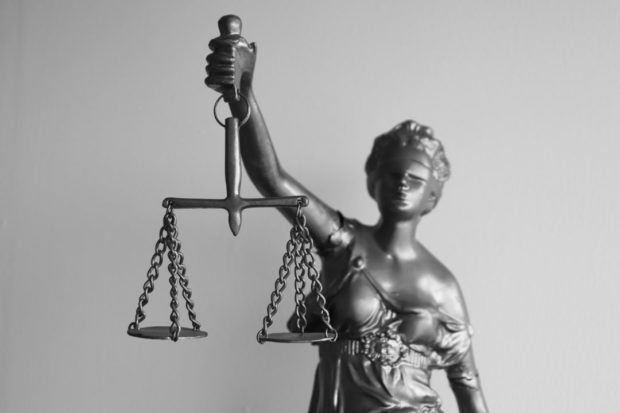
Many attacks on legal professionals are prematurely labeled as “cold cases,” according to an international delegation of lawyers representing various international human rights organizations. On Friday, June 14, 2024, Caravana disclosed preliminary findings of its fact-finding mission, after delegates visited areas in Luzon, Visayas, and Mindanao and gathered testimonies on attacks against legal experts. Stock Image/INQUIRER FILES
MANILA, Philippines — Many attacks on members of the legal profession are prematurely labeled as “cold cases,” an international delegation of lawyers representing various international human rights organizations said Friday as they disclosed their preliminary findings during a fact-finding mission.
The international delegation known as Caravana visited areas in Luzon, Visayas, and Mindanao, and gathered testimonies on attacks against legal professionals.
Based on the records of the National Union of Peoples’ Lawyers (NUPL) from September 15, 2007, there are 90 prima facie work or profession-related killings of lawyers, prosecutors, and judges. Fifty-nine of the killings occurred between July 2016 and July 2022. Four more have occurred since then, including the killing of Provincial Prosecutor Eleanor P. Dela Peña.
An unidentified motorcycle-riding assailant gunned down dela Peña while still aboard her vehicle in Digos City, Davao Del Sur, on Monday, June 10.
“The interviews conducted by the Caravana have left the delegation with the impression that many cases are prematurely labeled as ‘cold cases’,” Caravana said in its report.
READ: Inernational delegation of lawyers: We were tailed, threatened
A case is cold when, after a thorough investigation, it remains open and unresolved.
However, Caravana said that based on information they gathered in the Philippines, cases were labeled “cold” even “without thorough and effective investigation.”
“Interviewees also reported that, in many cases, the long history of impunity deters people from coming forward as witnesses. The climate of fear also often leads families to hesitate or refrain from filing complaints,” says the delegation’s preliminary findings.
The delegation added that aside from silencing victims, witnesses, and families, the fear of possible retribution has had a “chilling effect” of discouraging some lawyers from practicing law, particularly handling cases related to human rights or criminal defense.
READ: Int’l lawyers’ groups, legal professionals ask Duterte: Protect Filipino lawyers
Caravana also mentioned red-tagging and repression of freedom of speech, taking note of similar attacks and the safety of journalists.
The preliminary findings of the Caravana delegation will be shared with local and national authorities for their response. The delegation also said it has already spoken with judiciary representatives about its commitment to human rights.
The Caravana delegates include lawyers from the following organizations: European Association of Democratic Lawyers for Democracy and Human Rights (ELDH), European Democratic Lawyers (AED), Day of the Endangered Lawyer Foundation, International Association of Lawyers’ Institute for the Rule of Law (UIA-IROL), International Bar Association Human Rights Institute (IBAHRI), International Observatory for Lawyers in Danger (OIAD), Lawyers for Lawyers (L4L), The Law Society of England and Wales, New York City Bar Association, Associació Catalana per a la Defensa dels Drets Humans.